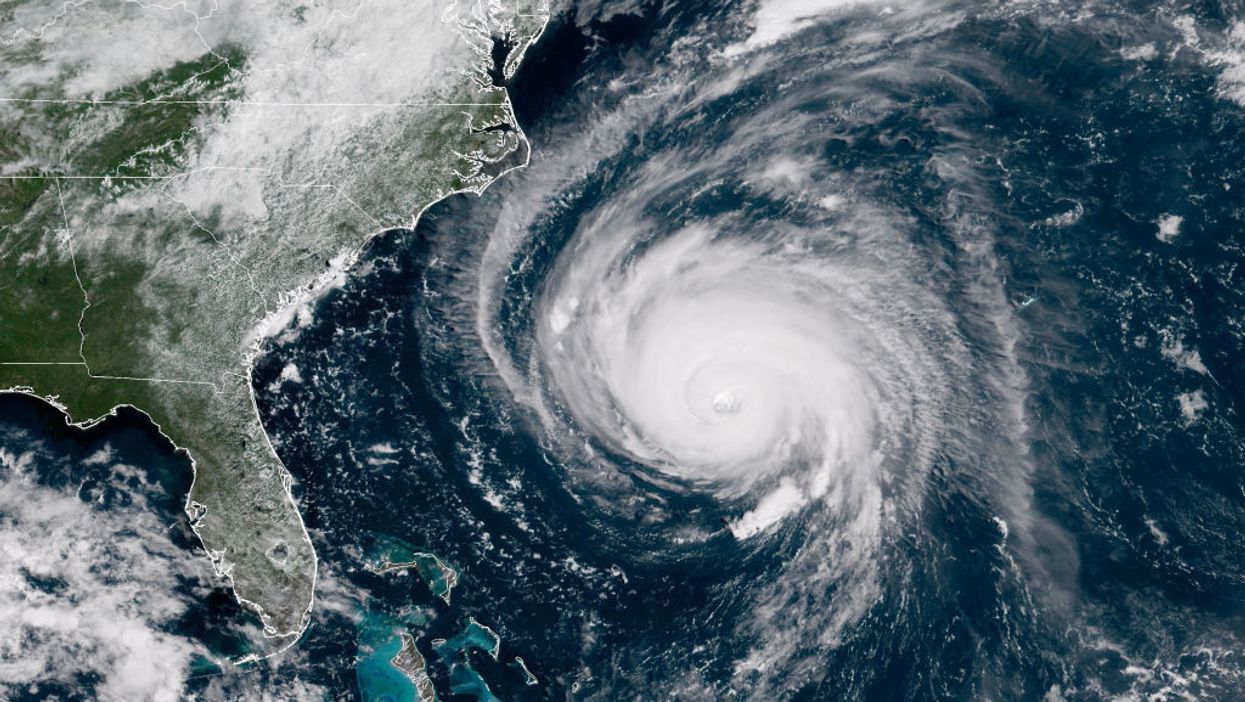
NOAA via Getty Images

2020: Coronavirus pandemic, then Murder Hornets, and now the possibility of an extreme hurricane season
As Americans are weathering the storm of dismal coronavirus pandemic headlines, the National Oceanic and Atmospheric Administration is reminding everyone that the 2020 hurricane season is right around the corner — and there is a potential of "extreme activity" in the forecast.
The NOAA released its predictions for the 2020 Atlantic hurricane season on Thursday and forecast an above-average hurricane season with 13-19 named storms, of which 6-10 could turn into hurricanes. The federal agency is predicting that there could be three to six major hurricanes in 2020, which is a Category 3 hurricane or higher that packs winds of at least 111 mph. If the 2020 forecast is correct, this would be the fifth consecutive year with an above-average hurricane season.
Neil Jacobs, the acting administrator of the NOAA, told reporters on Thursday that "an above-normal season is most likely, with a possibility of that season being extremely active."
"At this time, it is not possible to predict how many of these potential storms will land," Jacobs said.
"The 2020 Atlantic hurricane season is expected to be a busy one," said Gerry Bell, a hurricane climate specialist and research meteorologist at the NOAA's Climate Prediction Center in Camp Springs, Maryland. "We're predicting this to be an above-average season, possibly extremely active."
The NOAA explained why 2020 would have above-average hurricane activity:
The combination of several climate factors is driving the strong likelihood for above-normal activity in the Atlantic this year. El Nino Southern Oscillation (ENSO) conditions are expected to either remain neutral or to trend toward La Nina, meaning there will not be an El Nino present to suppress hurricane activity. Also, warmer-than-average sea surface temperatures in the tropical Atlantic Ocean and Caribbean Sea, coupled with reduced vertical wind shear, weaker tropical Atlantic trade winds, and an enhanced west African monsoon all increase the likelihood for an above-normal Atlantic hurricane season. Similar conditions have been producing more active seasons since the current high-activity era began in 1995.
This year's concerning forecast arrives a year after the 2019 Atlantic hurricane season that was tied with 1969 as the fourth-most active season on record. There were 18 named storms and 20 tropical cyclones in 2019, including three major hurricanes. The most destructive was Dorian, a Category 5 hurricane with 185-mph winds that killed 84 and caused about $4.72 billion in damages.
The NOAA is 70% confident in its predictions and said there is only a 10% chance that this season will be below normal.
The 2020 hurricane season starts on June 1, but there has already been one named Atlantic storm with Arthur, which was declared a tropical storm on May 17. This is the sixth-straight year that there has been a named storm before the start of the hurricane season.
The NOAA is predicting near or below normal cyclone activity in the central Pacific.
"This year we will likely see less activity in the Central Pacific region compared to more active seasons," said Bell, the NOAA's lead seasonal hurricane forecaster at the Climate Prediction Center. "Less activity is predicted since ocean temperatures are likely to be near-average in the central and eastern Pacific Ocean where hurricanes form, and because El Nino is not present to increase the activity."
The National Weather Service shared a video of the 2020 Atlantic hurricane forecast.